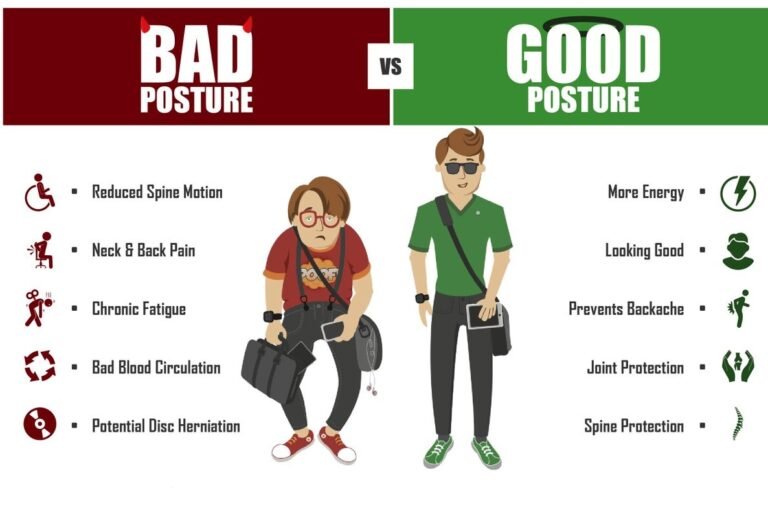
9 Simple Tips To Increase Height Naturally 😇
Maybe you’re starting to feel like your friends have suddenly grown up and you’re falling behind. Maybe the rest of your family is really tall, and you’re wondering if there’s anything you can do to catch up. The truth is that a person’s height is largely determined by external factors such as genetics. Many factors that affect height during your teenage years, such as food and activity levels, can be regulated.
Our height is mostly controlled by our genetic makeup. Genetic factors account for approximately 60-80 percent of the variability in height between people, whereas environmental influences, mostly nutrition, account for 20-40 percent.
Here, Study With Genius has put together a list of 9 simple tips to help you achieve your full height potential!
How Can You Increase Your Height?
Table of Contents

1.Eat a Healthy Breakfast
A nutritious breakfast is critical to your body’s optimum growth and development. Breakfast deficiency can be harmful to your general growth, particularly your height. To speed up your metabolism, you should have a proper breakfast. It has a major effect on your body’s development.
Your body will improve and grow if you eat a well-balanced diet rich in nutrients (necessary calcium intake) and vitamins (particularly vitamin D). Calcium promotes bone and muscle growth, while Vitamin D improves bone and muscle growth.
Vegetables, fruits, proteins, and carbohydrates should all be included in a healthy diet. On your dinner table, you should always have milk, lean meats, vegetables, and nuts.
Make an effort to stick to a regular eating schedule. Eat at the same time three times a day, with small, healthy snacks in between.

2.Exercising Your Body
Height can be improved with systematic exercise or sports. While it won’t help you grow an inch taller or become more flexible, it will help you grow an inch taller and more flexible.
Stretching can also have some health benefits. When aiming to gain an inch or two in height, exercises that stretch your spine and lengthen your body are very beneficial.

3. Eat Right Foods
A perfect balance of all vital nutrients is required for proper bodily growth and development. To do this, you can use diet supplements suitable for your age group in conjunction with a healthy diet. Maintaining a healthy body needs a well-balanced diet.
The following foods should be included in your diet:
- fruits in season
- fresh fruits and vegetables
- grains in their entirety
- proteins
- dairy
Foods containing: should be limited or avoided.
- sugar
- trans fats
- fats that are saturated
Increase your calcium intake if an underlying medical issue or advanced age is causing you to lose height by reducing your bone density. Women over the age of 50 and men over the age of 70 are frequently advised to eat 1,200 milligrams (mg) of calcium each day.
Vitamin D is also helpful to bone health. Tuna, fortified milk, and egg yolks are all good sources of vitamin D. If you don’t receive enough vitamin D from your food, talk to your doctor about taking a supplement to acquire the quantity you need.

4.Stay away from growth-stunting drugs
Drug and alcohol abuse can lead to delayed growth. From an early age, stay away from these vices. Malnutrition leads to short stature, hence proper nutrition is critical for a child’s growth. Children’s growth is hampered by excessive coffee and smoking. As a result, it’s critical to teach children to avoid these negative habits in order to promote normal bodily growth and development.
Abuse of drugs and alcohol might cause growth to be slowed. Stay away from these vices from a young age. Because malnutrition causes short height, good nutrition is essential for a child’s development. Excessive coffee and smoking impair children’s development. As a result, in order to ensure appropriate body growth and development, it’s vital to encourage youngsters to avoid these harmful habits.

5.Get Enough Sleep
In the long run, skipping sleep on occasion will have no effect on your height. However, if you sleep less than the required amount during adolescence, it can lead to difficulties.
This is due to the fact that your body produces HGH when you sleep. If you don’t get enough sleep, your production of this and other hormones may decrease.
It is proposed that:
- Each day, newborns up to the age of three months get 14-17 hours of sleep.
- Infants aged 3 to 11 months get 12 to 17 hours of sleep.
- Toddlers aged 1-2 years receive 11-14 hours of sleep.
- Children aged 3-5 years old get 10-13 hours of sleep per night.
- Children aged 6 to 13 receive nine to eleven hours of sleep.
- Teenagers between the ages of 14 and 17 obtain eight to ten hours of sleep per night.
- Adults aged 18 to 64 get seven to nine hours of sleep per night.
- Adults aged 65 and up receive seven to eight hours of sleep per night.
- Getting more sleep may even help you produce more HGH, so go ahead and take that power nap.
Adequate sleep and rest are important to the body’s general growth and development. Every night, growing children and teenagers require 9-11 hours of sleep. Children’s growth is thought to occur during the night. To have a good night’s sleep, you should create a peaceful and noise-free environment. Good sleep, on the other hand, aids in successful height gain. The pituitary gland in your brain creates growth hormone while you sleep. It also aids in the normal development and growth of your body.

6.Boost Your Immunity.
Stunted growth can also be caused by some childhood illnesses. Regular vaccination and a high Quality products diet can help prevent them (which is found in citrus fruits like orange, grapefruit and lemon). You may enhance your immune system in a variety of ways, including eating full, fresh meals and avoiding processed, hydrogenated foods like the popular margarine.
A healthy diet contributes to a strong immune system. To keep your immune system strong, eat plenty of fruits, vegetables, legumes, whole grains, and foods high in antioxidants and omega-3 fatty acids.

7.Improve your posture.
You may appear shorter than you are due to poor posture. Slumping or slouching might also affect your actual height over time.
In three locations, your back should naturally curve. These curves may adjust to match your new posture if you slump or slouch repeatedly. This can result in neck and back pain.
It’s necessary to be aware of how you stand, sit, and sleep. Consult your physician about incorporating ergonomics into your regular routine. A standing desk or memory foam pillow, depending on your needs, may be all you need to improve your posture.
You can also do exercises that will help you to improve your posture over time. Ask your doctor if you’re unsure where to start. They can learn how to develop an exercise plan that is appropriate for you.

8.Stay active
Regular exercise offers numerous advantages. It boosts HGH production, strengthens your muscles and bones, and helps you maintain a healthy weight.
At least one hour of physical activity every day is recommended for school-aged children. They should concentrate on the following throughout this time:
- Pushups and situps are examples of strength-building workouts.
- Yoga, for example, is a good example of flexibility exercises.
- Playing tag, jumping rope, or riding are all examples of aerobic exercises.
Exercising as an adult has its own set of advantages. It can help you maintain your general health while also lowering your risk of developing osteoporosis. This condition develops when your bones become brittle or weak, resulting in a reduction of bone density. You may “shrink” as a result of this.
To lower your risk, go for a walk, play tennis, or do yoga several times a week.

9.Use fashion to your advantage
Real talk: We know it seems self-evident, but heels and platform shoes will increase your confidence. Changing your clothes can help you appear to have longer legs and a longer torso.
Try these more fashion tricks:
- pants and skirts with a high waistline
- clothing that is fitted and contoured
- putting on only one colour
- skirts or shorter shorts
- Instead of tall boots, choose ankle boots
In the conclusion,
Genetics have the most important impact in your height, thus there isn’t much you can do to improve your stature (except thank your parents). Nutrition and exercise, as well as environmental factors, have a part in your growth and development.
Once you reach the age of 18, your height is pretty well established. You may promote healthy growth during puberty by eating a well-balanced diet, being active, and getting enough sleep each night.
Even if you’ve outgrown your growth spurt, you can look taller by improving your posture and strengthening your muscles.








